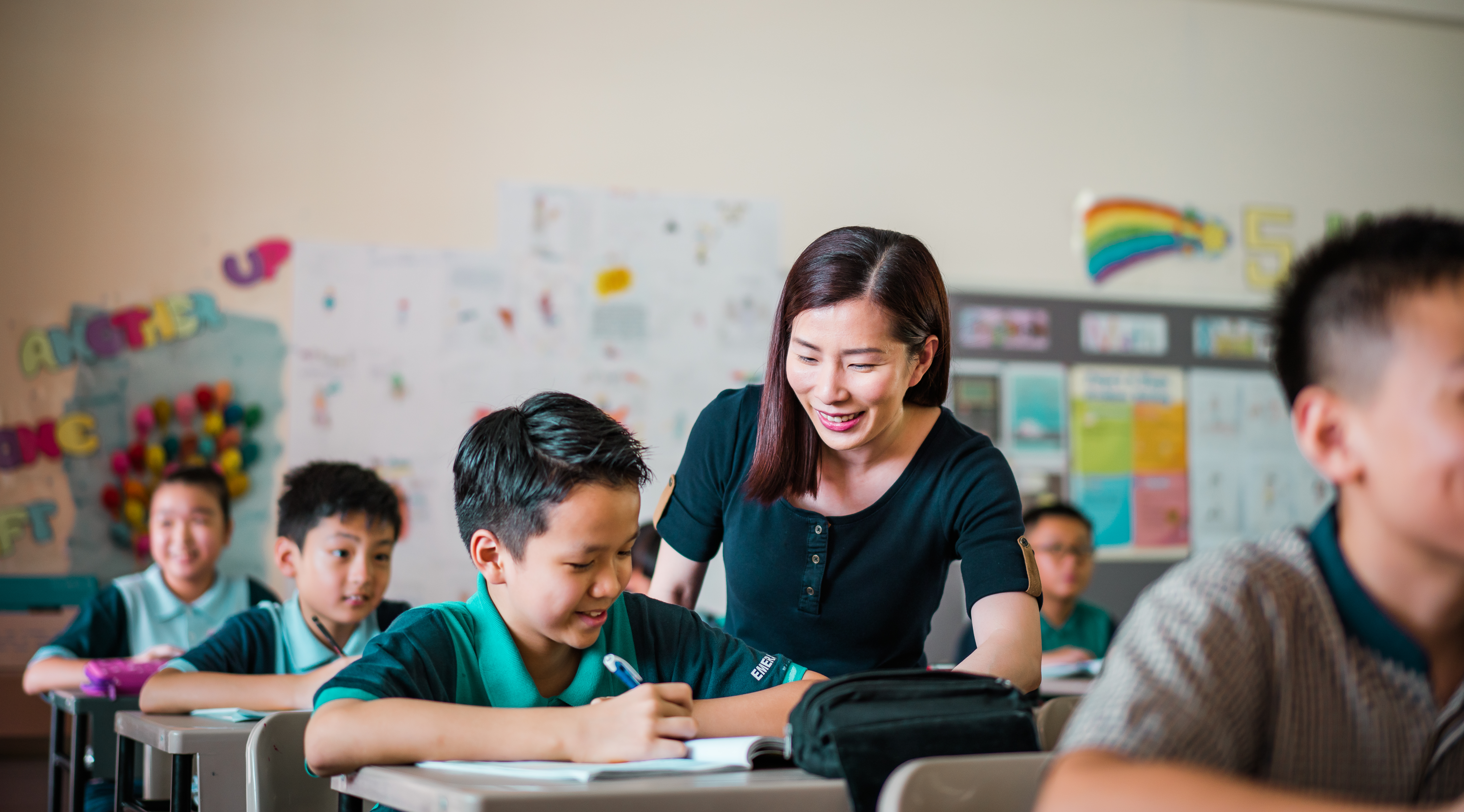Young Children’s Voices in Mathematical Problem Solving
Contributed by Dr Ho Siew Yin and Sng Wei Qin Abbie, from NTUC First Campus, for SingTeach Virtual […]
Read More
The use of Knowledge Building (KB) pedagogies in classrooms aims to help students acquire the ability to recognize, communicate, interrogate and apply knowledge in key subject domains. Two educators and KB-enthusiasts share some insights on how using KB pedagogies have benefitted both classroom teaching and learning.

KB promotes diversity of ideas and allows students opportunities to share and build on their ideas and those of the classroom community through self-directed learning and collaboration. KB honours the student voice and each student is encouraged to share their ideas and responses to other students’ ideas. Some of these ideas may not be new but they are authentic to each student.
I have witnessed how my students have grown in confidence in idea generation and learned how to navigate respectfully in an idea-centric classroom. My students always pleasantly surprise me in my KB classroom – be it quiet students sharing their ideas freely on the KB platform, or the maturity of ideas and questions that originate from my young primary school students! This has certainly shaped my understanding of each student in my classes better and led me to never underestimate my learners. I am heartened that my quieter learners have found a way to share their thoughts and ideas with others in an environment they find less intimidating.
Through KB, I am also able to discover my students’ varying levels of understanding as well as misconceptions in various topics. With this information, I am able to design lessons and interventions more intentionally to cater to my students’ needs and to differentiate instruction for them. As a KB facilitator in my students’ learning, I have learned not to impose my idea of what “effective lessons” should be on them, but to design my lessons based on their ideas and the thinking behind them – which has challenged me to understand my learners and their ideas more keenly. Through KB, I have observed stronger student engagement and student-owned learning in my classes.
Muhammad Ansar Bin Kamsan
Teacher, Haig Girl’s School
With my Literature class at Unity Secondary School, I chose to focus on the most relevant KB principles – Idea Diversity, Improvable Ideas, Epistemic Agency and Democratizing Knowledge. I wanted to build a classroom community where students have a strong sense of ownership over their learning and interpretations of texts, and are eager to work as a community to improve their collective and individual ideas. Thus, my pedagogical choices were heavily biased towards presenting literature texts as thought puzzles to be solved. I used the online discussion platform, Knowledge Forum (KF), to encourage students’ active exchange of ideas in relation to the texts. I also provided students with feedback on their knowledge-building contributions through individualized reports generated using the learning analytics tools available on KF.
Students reported that KF empowered them by giving them a voice and allowing their views to be read by others online. This gave the class access to a wide range of ideas, including those which students may have been reluctant to share in a face-to-face setting. Students also found the responses from their peers energizing and liberating, as they saw these as validation of their ideas, and appreciated suggestions for improvement. The majority of the feedback students received came from their peers, rather than the teacher, thus empowering them to work together as a community to improve their collective ideas.
The archival function of KF supported students’ learning, as all class materials and discussions remained accessible for revision. This also enabled discussions to be extended to other platforms such as WhatsApp – which better facilitated real-time communication among students. Easy access to class materials paved the way for on-going, student-initiated discussions. More importantly, students appreciated how KB pedagogies emphasised the development of skills in the affective domain such as communication and empathy and required students’ active participation in personal and group learning. KB re-aligned students’ focus to learning and self-development instead of academic competition with others.
Charmaine Tan
Teacher, Unity Secondary School (2019)
Currently Academy Officer, English Language Institute of Singapore (ELIS), MOE
Subscribe to our newsletter to receive the latest information about our articles and events. Email us at sgteach@nie.edu.sg for assistance.
On topics related to teaching and learning, we invite you to contribute articles that focus on the following:
We welcome contributions that explore how educators are shaping the future of learning in a rapidly changing world marked by technological advancements and global challenges.
If you have a classroom or education research story to share, we invite you to send in your contribution articles.
Submit your contribution here:
SingTeach complies with the Personal Data Protection Act 2012 of Singapore
For questions, please contact the editorial team: sgteach@nie.edu.sg
